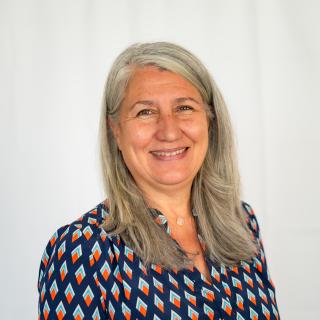Essentials of Quality Public Preschool
November 8, 2018
NIEER’s new state-by-state analysis evaluates how well 59 state-funded preschool programs satisfy a list of “essential elements” characterizing high-quality programs—and finds widespread change is needed to provide the high-quality early learning opportunities children need to succeed.
Implementing 15 Essential Elements for High-Quality Pre-K: An Updated Scan of State Policies reviews policies in place across 44 states and DC as well as implementation and the enabling environment in which preschool operates, specifically political leadership and compelling vision. Using Jim Minervino’s “15 Essential Elements” study as a lens for investigating the quality of state or local preschool program policies and practices, NIEER assessed whether criteria were fully met, partially met, or not met, based primarily on the 2017-18 academic year.
This report complements NIEER’s annual State of Preschool yearbooks tracking funding, access, and policies supporting state-funded, high-quality pre-K. While NIEER yearbooks examine the policies that support state-funded pre-k, the Essential Elements reviews how and the degree to which these policies are implemented, and it examines the strength of enabling environment which provides the foundation and context for policy development and implementation.
Overall, state programs met an average of just 6 out of 15 Essential Elements. The most challenging element for programs to meet was length of day–almost 60 percent of pre-k programs offer only a part-day program.
Another challenge for programs was supporting dual language learners (DLLs). Fewer than half of programs offered some support, and only 25 percent had a well-developed strategy for educating DLLs.
Alabama’s First Class program stood out for fully meeting the most elements: 14 out of 15. Seven others—Georgia, Louisiana, Michigan, New Jersey (Abbott), Rhode Island, Washington and West Virginia—fully met at least 10 of 15 Essential Elements.
Most states have early learning standards in place to guide quality pre-K programs, and most meet the goal of having two adults in each pre-K classroom, the analysis shows. Political will for high-quality pre-K appears to be growing, and more states are providing pre-K teachers pay parity with K-12 public school teachers.
However, more than a dozen states, including some of the most populous (Arkansas, Arizona, California, Connecticut, Florida, Indiana, Kansas, Massachusetts, Ohio, Oregon, Pennsylvania, Texas and Wisconsin), fully met fewer than five essential elements.
If our goal is enhancing learning and development in ways that increase a child’s success in school and life—particularly for children from lower-income families—substantial change is required. For preschool to have lasting benefits, the research shows that public policy must provide more widespread and equitable access to high-quality classrooms.
Viewed together, these two reports help us understand, both nationally and at the state level, are we setting policies that support high-quality pre-K programs? and are they able to be implemented?
GG Weisenfeld is an Assistant Research Professor at NIEER working on the annual State of Preschool Yearbook, preparing state pre-K reports and researching and offering technical assistance on designing and implementing early childhood policies and programs. She previously held the position of Hawaii’s Director of the Executive Office on Early Learning in the Office of the Governor, worked on state level birth to grade three alignment as the P-3 Director of Early Learning for Hawaii P-20, was a professor at the City University of New York, and was an Early Head Start/Head Start Director and preschool teacher.
The Authors
GG Weisenfeld is a Senior ECE Policy Specialist at the National Institute for Early Education Research (NIEER) at Rutgers University, Graduate School of Education.
About NIEER
The National Institute for Early Education Research (NIEER) at the Graduate School of Education, Rutgers University, New Brunswick, NJ, conducts and disseminates independent research and analysis to inform early childhood education policy.

